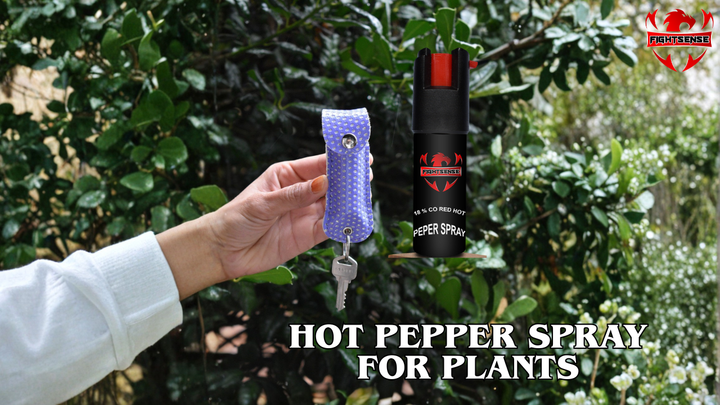Hot Pepper Spray for Plants: Natural DIY Pest Repellent
8th Oct 2025
Are you sick of bugs eating your leaves or animals digging up your vegetables? Hot pepper spray for plants could be the greatest approach to protect your garden without using chemicals.
You probably already have the materials for this simple, do-it-yourself treatment at home.
It works, is safe when used correctly, and is easy to make. This DIY spray can help keep pests away from your flowers, herbs, or vegetables without hurting your plants or the environment.
Key Takeaways:
- Hot pepper spray for plants is a safe, natural way to keep pests away from your garden.
- It only takes a few minutes to make and uses materials that are easy to get.
- It works on bugs, rabbits, squirrels, and even deer.
- For optimal results, reapply every 7 to 10 days or after it rains.
- Before using it on the whole plant, always test it on a tiny area.
What Is Hot Pepper Spray for Plants?
Hot pepper spray for plants is a natural way to keep bugs and animals away. It is made using hot chilli peppers, water, and a little bit of soap or oil. Capsaicin in hot peppers annoys bugs and animals, which makes your plants a lot less tasty to eat.
- It's great for: Insects that chew, including caterpillars and beetles
- Aphids and mites are examples of sap-suckers.
- Rabbits, squirrels, and even deer
The best part is that it's safe to use and easy to create at home!
How to Make Hot Pepper Spray for Plants (Blender Method)
Here's an easy recipe you may make at home:
What you need
- 2–3 fresh spicy chilli peppers or 1–2 tablespoons of crushed red pepper flakes
- 1 litre (1 quart) of water
- 1 tablespoon of vegetable oil or 1 teaspoon of mild dish soap
How to do it
- Mix the chopped peppers with 1 cup of water until the mixture is smooth.
- Put a big container under the cheesecloth or fine sieve and pour the mixture through it.
- Add the rest of the water to make one quart.
- Add soap or oil to help the spray attach to the leaves.
- Put it in a spray bottle and label it neatly.
Tip: When you handle hot peppers, wear gloves and don't touch your face.
How to Apply Hot Pepper Spray in the Garden
To get the most out of your spray,
- Do it early in the morning or late at night to keep the sun from hurting it.
- Cover the tops and bottoms of leaves, where bugs like to hide.
- Reapply every 7 to 10 days or when it rains.
- Learn how to make hot pepper spray for garden to protect your plants naturally.
- Before eating, wash fruits and vegetables well.
Tip: Always test the spray on one leaf before using it on the whole plant, especially if the plant is sensitive.
Related: How to Use Pepper Spray Effectively — https://www.fightsense.com/blog/how-to-use-pepper-spray-effectively/
Fightsense’s Mission: Safety for Home and Garden:
At Fightsense, we believe in protection — whether it’s for your personal safety or your garden. While we're trusted for our self-defense tools, we also support safe, natural solutions like hot pepper spray for plants to help you protect what matters most. Our goal is to make protection simple, effective, and accessible in every part of life.
Final Thoughts:
Hot pepper spray for plants is a tried-and-true approach to protect your garden that you can easily make at home — learn how to make hot pepper spray for garden; it keeps bugs away, costs little, and gives you peace of mind.
Disclaimer
Use homemade hot pepper spray for plants with care; test first, wear gloves, and results may vary—Fightsense.com is not liable for misuse.
FAQs:
1. How often should I spray my plants?
To keep it working, put it on again every 7 to 10 days or after a strong rain.
2. Is it okay to spray hot pepper on fruits and vegetables?
Yes, it's safe for plants that you can eat. Just wash it carefully before you eat.
3. Will this spray get rid of bugs?
No, it keeps them away instead of killing them. It keeps bugs from eating your plants.
4. Is it safe for kids and pets?
Yes, when the spray has dried. Don't spray close to places where kids or dogs might get wet spray on them
5. Does it work on rabbits and deer?
Yes, a lot of gardeners say that using it regularly keeps deer, rabbits, and squirrels away.

